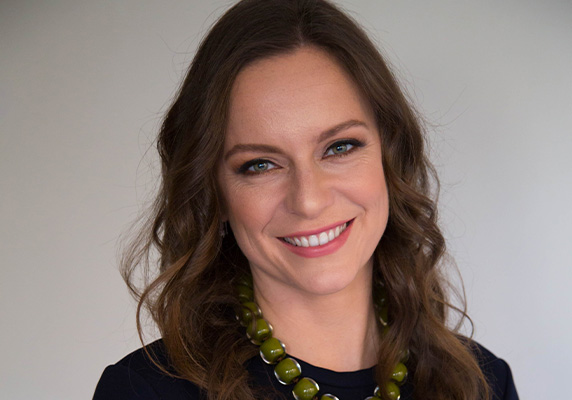For most Australians who are victims of online defamation, the process of removing content can be both unclear and prolonged. There are some successes, however.
When individuals are the victim of conspiracy theories or false claims, the avenues for redress can be time-consuming, complicated, or – where litigation is pursued – expensive to the point of being inaccessible to the average Australian.
In May 2020, first-term Nationals MP Anne Webster, based in Mildura, Victoria, launched a defamation action in the federal court in response to claims by Karen Brewer on Facebook that based Webster was “a member of a secretive paedophile network”.
Peter Cash is a Partner and Head of Norton Rose Fulbright’s Melbourne office, which represented Webster. She reached out to the firm on 27 April 2020.
Cash recalls viewing Brewer’s online posts.
“It was clearly defamatory, that much was obvious. The question was whether pursuing that as a legal remedy was going to be the best or only option to achieve her immediate objective of stopping the further publication of this egregious, highly prejudicial and defamatory material.”
Identifying the creator of defamatory material in order to issue them with the originating proceedings or orders made can be an obstacle, Cash explains.

Cash and his team had established Brewer’s identity from Facebook posts in which she referred to her electorate and her former husband’s role in state politics. She had also written a letter to a local minister that had provided her residential address.
The following month, on 8 May, Justice Michael Wheelahan issued orders for the defendant, Brewer, to remove the posts as an urgent priority. Her vitriolic claims had been posted on a number of Facebook pages, including Mildura-based community pages. A Guardian story in August 2020 recorded how Brewer’s personal Facebook page, followed by thousands, regularly streamed posts and videos questioning the safety and validity of vaccinations and fluoride and commenting on the suspected infiltration of paedophiles and secretive networks undermining Australia’s parliament, judiciary, and media.
Brewer’s attacks on Webster were centred on Webster’s and her husband’s newly founded not-for-profit organisation Zoe Support Australia, a support organisation for single mothers (also named in the defamation claim).
Removing the material took place quickly once the court order was issued, but, for the majority of Australians who are victims of harmful or malicious (and baseless) claims by conspiracy theorists online, the process of removing content can be unclear and prolonged.
For the majority of Australians who are victims of harmful or malicious (and baseless) claims by conspiracy theorists online, the process of removing content can be unclear and prolonged.
In Webster’s case in 2020, Cash observes, “It was very difficult. There [were] two avenues: one was to ask Facebook to remove [the defamatory material], but we found that an obstacle to doing that was finding the appropriate form on its website; to this day, I can’t find it, you have to use Google to do this. In this case it helped that we were able to pursue the second avenue, which was to obtain – very quickly – a mandatory injunction from the Federal Court requiring Brewer to remove the posts. Whilst she ignored the court’s order herself, Facebook took appropriate heed and immediately took down the posts. We were fortunate that we were able to confirm Brewer’s identity and to locate her (in New Zealand) by other means.”
However, Brewer began posting defamatory material to YouTube instead. Cash and his team returned to court for additional orders and successfully had Brewer’s defamatory content removed, though this carried on between September and November due to YouTube’s requests for further explanations and justifications for removal.
‘Disgraceful and inexplicable’
In September 2020, Brewer was ordered to pay $875,000 in damages (Webster was awarded $350,000, her husband Dr Phillip Webster $225,000 and Zoe Support $300,000, including compensatory and aggravated damages, plus legal costs) and Justice Wheelahan labelled Brewer’s posts “disgraceful and inexplicable”.
Cash says, “Anne was obviously pleased that we were able to quickly get the order to remove the Facebook material. It’s fair to say that as someone not accustomed to litigation she was understandably dismayed that in order to get that result she was required to pay litigation costs to seek to redress a wrong that had been done to her.”
He adds, “The critical issue to me in all of this is the need for a cost-effective, affordable means by which private citizens can obtain from social media platforms sufficient information about the identity, and ideally the location, of the poster so that they can then utilise the legal system.”
Cash observes, “Some may say that social media platforms should, themselves, be more proactive in adjudicating and enforcing their community standards, which they publish on their websites. I don’t have an empirical view on how assiduous they are in doing that. In my experience, Facebook was pretty good. When you get a court order, they’re prompt and quite good to deal with.”

A matter of public interest?
Victoria-Jane Otavski has accumulated over 20 years’ experience in the commercial, litigation, dispute resolution and employment practice areas.
Otavski says the number of enquiries to her firm has increased tenfold year on year for the last five years and that suggested insertions in the Defamation Act (Model Defamation Provisions) midway through 2021 are “interesting … A number of seasoned defamation practitioners have not really … understood them.”
The intention of the amendments was to improve the balance between freedom of expression and adapting to the platforms of social media and publications.
“There’s now a public interest defence, in which the publisher reasonably believed that it was a matter of public interest. That particular defence will create issues, and how it is interpreted is yet to be seen,” says Otavski.
She says that over 90 per cent of cases of defamation she has handled over recent years related to online publications.
“When acting for a plaintiff, success depends on what that individual is striving for. Ordinarily, they want material removed so that the harm stops. One of the key objectives is to have the publication removed from the internet and have an undertaking not to republish. In terms of the other factors, it depends on what any client or plaintiff is after. In certain instances, they want an apology or they want compensation for the harm they’ve suffered. More often than not, it’s a combination.”




